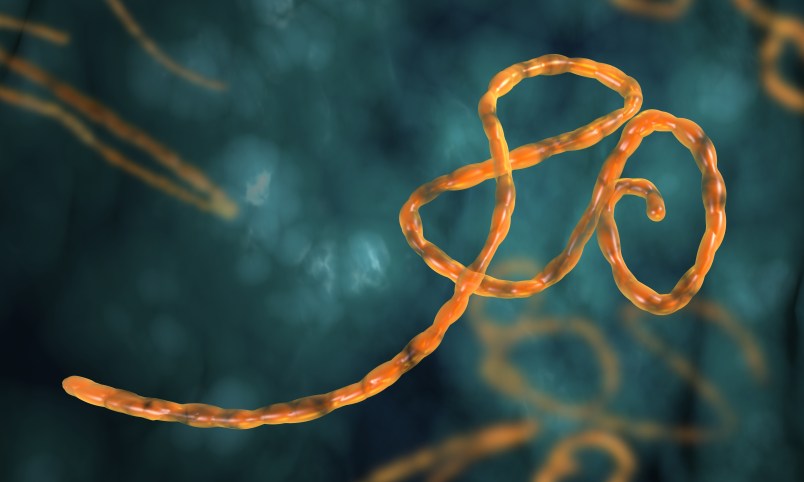I mentioned yesterday the question of why these two American doctors happened to have gotten what may have been a life saving treatment for Ebola when hundreds of people in Africa have already died in the current outbreak. The cynical explanation is that American lives just count for more than Africans from impoverished countries – and I don’t rule out some element of that. But when I first heard this story the big thing that jumped out to me was the issue of informed consent. Because this treatment was so new as to almost not amount to a treatment – more like a promising research lead. And the history of using humans as essentially human guinea pigs is, to put it mildly, a very dark history. Here’s an email from TPM Reader HB which throws some more light on the question …
You ask: “So how are we only hearing about this treatment when two American aid workers came down with the disease after going on 800 people have died in the current outbreak in three countries in Africa?”
I don’t know anything about this particular case, but I do do bioethics, so: It’s hard to overstate how unusual it is for a drug at this stage of development to be given to humans. This CNN piece suggests that they’ve only tried it on eight macaques so far. That’s a small number; they’d normally do significantly more testing in primates (or some other good animal model) before moving on to humans. Then when they did move to humans, they’d begin by testing for safety, then do various complicated further tests on larger numbers of people, and only then, if it had proved to be safe and effective, would they be able to apply for FDA approval.
This means, first, that this probably wouldn’t have been considered a “treatment” yet, just a promising lead. But second: trying a drug at this stage on humans has serious ethical risks. You’d want to be really, really sure that the people in question had given informed consent, and that that informed consent included their being absolutely clear that this drug not only might not work, but that it might actually be harmful to them. You’d want to be sure that they understood what it means for a drug to be at this preliminary stage of testing, and that they fully appreciated the fact that they were taking a huge gamble. (No, this procedure was not designed with something as nightmarish as Ebola in mind, something that makes statements like ‘you know, you’re assuming a real risk here’ sound silly, but still. It was a real risk. Ebola is not 100% lethal; it’s quite possible that an untested treatment could kill someone who would otherwise have recovered.) I think that this (along with the fact that the drug seems to require careful handling of the sort that would best be provided in a serious hospital, and the fact that there seems to have been only a limited amount of the drug available) would argue strongly in favor of trying the drug first on doctors, and specifically doctors who understand how much of the normal testing process was being bypassed, and what that meant.
As for why American doctors: here I am really speculating, but: I have read the same articles you probably have about the levels of distrust in the affected countries. I cannot imagine what it would be like things went badly wrong and Westerners were seen to be killing e.g. Liberians. Especially if the US government was (as the reporting suggests) involved in getting the drug to them.
Views about medical research seem to oscillate between thinking of research as risks inflicted on human guinea pigs and thinking of it as offering desperate people a chance at a cure, a chance which is held up by annoying research protocols and red tape. (On the one hand, Tuskegee; on the other, experimental HIV treatments.) The problem is that ex ante you just don’t know which drugs will work, which will not, and which will have awful unforeseen effects. There have been a number of very serious criticisms of drug companies doing research on people in developing countries, especially when that research bypasses (or is thought to bypass) the kinds of controls we’d insist on in this country. (See, e.g., this.) It would surprise me if that hadn’t played some role here.






